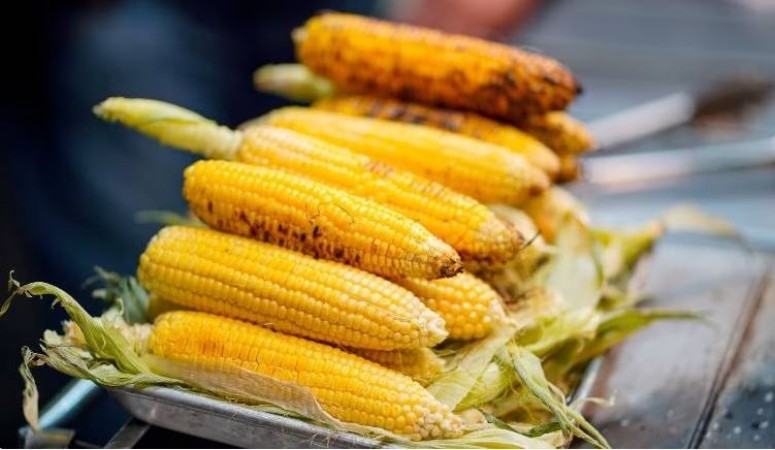
Corn, also known as "Bhutta" in many regions, is a beloved seasonal delight, especially during rainy days. With its vibrant yellow kernels and irresistible taste, corn not only satisfies your taste buds but also offers a plethora of health benefits. Here are 8 reasons why indulging in corn during rainy days can contribute to your well-being:
1. Immune System Boost: Rainy seasons often bring along a higher risk of infections. Corn contains essential nutrients like vitamin C, which boosts your immune system, helping your body fend off illnesses more effectively.
2. Rich in Fiber: Corn is a great source of dietary fiber. Eating corn regularly can aid in digestion, prevent constipation, and support gut health, ensuring you feel comfortable during the rainy season.
3. Energy Boost: The carbohydrate content in corn provides a quick energy boost. During gloomy rainy days, a serving of corn can help uplift your spirits and keep you active.
4. Antioxidant Powerhouse: Corn is loaded with antioxidants like lutein and zeaxanthin, which are beneficial for eye health. These antioxidants help protect your eyes from potential damage caused by free radicals and harmful UV rays.
5. Heart Health: Corn contains niacin and folate, which contribute to lowering cholesterol levels and maintaining heart health. Eating corn can support cardiovascular well-being, crucial during the rainy season when the risk of heart-related issues might be slightly higher.
6. Skin Benefits: Rainy weather can sometimes lead to skin problems due to humidity and moisture. Corn is rich in vitamins and minerals that promote healthy skin. The antioxidants in corn help combat skin aging and maintain a radiant complexion.
7. Weight Management: Enjoying corn can help with weight management. The fiber content keeps you feeling full for longer periods, curbing overeating and aiding in weight control.
8. Nutrient Variety: Corn provides an array of essential nutrients like vitamin B6, iron, magnesium, and phosphorus. These nutrients play vital roles in various bodily functions, from energy production to bone health.
While indulging in the scrumptious delight of corn during rainy days, it's essential to keep a few things in mind:
- Moderation: While corn offers numerous benefits, moderation is key. Eating corn in excess can lead to an increase in calories and carbohydrates.
- Preparation: Opt for healthier cooking methods, such as grilling or steaming, instead of deep frying. This helps retain the nutritional value of corn.
- Allergies: Some individuals may be allergic to corn. If you experience any adverse reactions after consuming corn, consult a healthcare professional.
In conclusion, enjoying corn, or "Bhutta," during rainy days can be a delightful and nutritious experience. Its immune-boosting, antioxidant-rich, and heart-supporting properties make it an excellent addition to your rainy-season diet. Just remember to savor it in moderation and enjoy its health benefits while relishing the rainy ambiance.
How Much Chives Should You Consume?
A Small Amount of Nuts Daily May Reduce the Risk of Depression